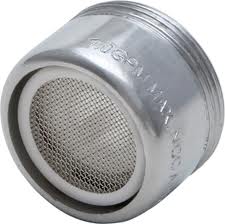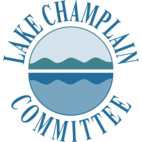Water Conservation Matters

Twist on a faucet aerator to save water without noticeably decreasing flow. They cost only a few dollars at the hardware store and don't need a plumber to install.
Why conserve water in a wet environment like the Lake Champlain basin? Wasted water contributes to lake pollution. Sewage treatment plants remove phosphorus and other pollutants from the water that leaves our homes and businesses but the efficiency of that removal decreases when sewage is diluted by leaked tap water. Also, municipal drinking water systems often add a phosphorus-containing compound to drinking water to prevent lead from leaching from old pipes. This compound must then be removed from wastewater before it enters Lake Champlain. Removal is not 100 percent efficient, so wasted water leads to additional lake pollution.
Wasting water also wastes energy. The biggest use of electricity in many communities is supplying water and cleaning it up after it's been used. A lot of energy is consumed to collect, transport, treat and deliver water and wastewater. Water must be pumped from its source to its end use in houses, apartments, businesses and institutions then collected again for treatment. Reducing water use and fixing leaks saves money and lessens demands on the energy-intensive systems that deliver, treat and heat water. Download LCC's new flier for tips on how to conserve water indoors and out.
